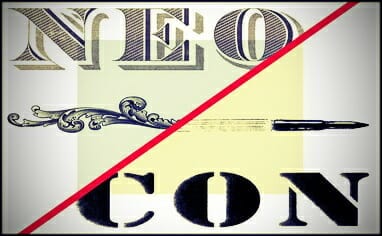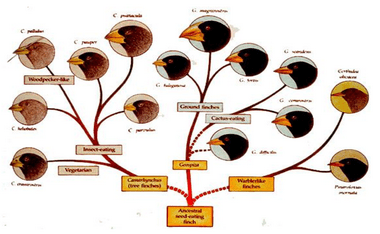neoconservativism A political philosophy that rejects the utopianism and egalitarianism espoused in liberalism, but departs from conservatism by embracing collective insurance and cash payments to the needy; a philosophy that takes modern democratic capitalism to be exemplary and exportable, with the active furtherance of freedom abroad to be the best course in most cases.
Neoconservatism (the word triumphed over “the new conservatism”) was spawned in the pages of a quarterly, The Public Interest, edited by Irving Kristol and Daniel Bell, published by Warren Manshel, and frequently contributed to by Daniel Patrick Moynihan and Seymour Martin Lipset. These former liberals were troubled by the failures of Lyndon Johnson’s “Great Society” and dismayed at the way political orders throughout the world—especially the social democracies—were becoming statist and simultaneously less stable. When Keynesian economics began to fail to contain inflation, neoconservatives felt the economic basis for social democracy as it has been practiced began to erode. The last straw for many of the lifelong Democrats was the strident discontent of the youthful counterculture of the sixties, which made liberal elders uncomfortable with the culture that produced it.
As it became fashionable all along the political spectrum to be alienated by “big government,” that cultural chasm between NEW LEFT and “old” left widened: many of the former liberals could not stomach what they saw as the social permissiveness, national self-flagellation and rejection of individual responsibility so often espoused by the inheritors of liberalism.
What distinguished neo-conservatism from the “old” conservatism? The novel feature of the new conservatism is a relaxed attitude toward collective responsibility: “A welfare state, properly conceived,” wrote Irving Kristol in The American Spectator in 1977, “can be an integral part of a conservative society.” Such a statement is heresy to traditional conservatives; they hold that conservatism teaches that statism leads to a repression of individuality. But Kristol plunged ahead: “It is antisocialist, of course … but it is not upset by the fact that in a populous, complex, and affluent society, people may prefer to purchase certain goods and services collectively rather than individually … People will always want security as much as they want liberty, and the nineteenth-century liberal-individualist notion that life for all of us should be an enterprise at continual risk is doctrinaire fantasy.”
Kristol, his wife Gertrude Himmelfarb, and their son William (founder and editor of The Weekly Standard, more politically partisan than the forerunning Public Interest) saw liberal institutions such as Social Security to be bulwarks against further socialization. Many of their intellectual followers hope the effect of their movement will be to remove utopian dreams from practical government. To the socialists (who want to center more power in the state), as well as to the “old” conservatives (who want to place more reliance on the individual), neoconservatives say that the system the U.S. has now evolved—while not, in Voltaire’s phrase, “the best of all possible worlds”—is the best of all available worlds, and well worth not only defending but extending.
An early use of the term was by James Schall in Time magazine on August 23,1971: “Judaism and Christianity have always placed primacy in man. Now this primacy is attacked by what I call the neoconservative ecological approach to life.” Senator Moynihan recalled to the author that it was Michael Harrington, writer on poverty, who popularized the term at about that time in its present context.
In foreign policy, most neoconservatives from liberal cultural backgrounds parted company with their longtime colleagues on dealing with the threat of world Communism. They drew ideological fire from accomodationist friends as they aligned themselves with Ronald Reagan HARD-LINERS. After the Soviet Union collapsed after being, in the neocon view, economically stressed by the U.S. arms buildup and encouragement of dissidents, the neocons were in the policy ascendancy.
After Iraqi dictator Saddam Hussein invaded Kuwait, threatening pan-Arab conquest and endangering world oil supplies, neocons applauded George H.W. Bush’s “line in the sand” and the end of the VIETNAM SYNDROME; the fact that many neocon leaders were Jews led to angry accusations from some on the far right as well as the far left that they put Israel’s interests first (see AMEN CORNER). In 2002, when most intelligence reports indicated that Saddam was preparing a comeback with associations with Al Qaeda, suspected development of weapons of mass destruction, and mounting human rights abuses within Iraq, neoconservatives in think tanks and the media were in the forefront of those supporting President George W. Bush’s argument for REGIME CHANGE. However, as the expected similarly short conflict became “the long war,” public anger at the conduct of the war tarnished the neoconservative, idealistic “freedom agenda”; REALISM was soon in the public-policy saddle, and in 2006 war-weariness was a primary cause of the change in the majorities in House and Senate. The national debate then centered on the Administration’s plan to STAY THE COURSE, a phrase reviled by the anti-war majority, versus CUT AND RUN, a counterattack phrase by neocons and other HAWKS opposing withdrawal as a form of surrender.
Among political journalists, the word is now almost always clipped to neo-cons, often without the hyphen—more a description of the articulators of the embattled foreign policy than of the policy itself. The clipped version, neocon, is often taken to be synonymous with “rightwing hawk.” In the opening stages in 2007 of the Democratic presidential primary season, Senator Barack Obama, who made a point of having opposed the Iraq war from the start, was widely seen as a liberal dove; when criticized for this as being “naive” by Hillary Clinton, he sternly took aim at Pakistan’s president: “If we have actionable intelligence about high-value terrorist targets and President Musharraf will not act, we will.” The gleeful Wall Street Journal editorial headline: “Barack Obama, Neocon.”
William Safire, Safire’s Political Dictionary (New York, NY: Oxford University Press, 2008), 455-457, cf. neoconservative.



